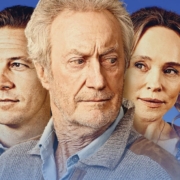Real-Life ‘Hunger Games’: How Sean Turnell Survived 650 Days in a Myanmar Prison
By: Georgia Free
Imagine being locked in a dark prison cell, with no access to the outside world. No windows, no bed, minimal food. Soldiers interrogating you day and night.
Worst of all, you did nothing wrong.
This is Sean Turnell’s story.
Australian economist Sean Turnell was an adviser to Myanmar’s former leader Aung San Suu Kyi. However, when the military overthrew Suu Kyi’s democratically elected government in 2021, Sean was arrested and illegally imprisoned. He wouldn’t see freedom again for 650 days.
Myanmar – a country of hope
Myanmar, formerly known as Burma, gained independence in 1948, but has been ruled by a succession of military leaders since then, except for the brief period where Aung Sun Suu Kyi was elected to government (2016-2021).
Sean likened the regime to a stain on an otherwise beautiful country.
“It’s a lovely country…incredibly exotic locations, beautiful countryside, most sensational sunsets,” Sean said in our interview. “But it has this one terrible thing, and that is just a succession of military regimes that basically won’t leave the people alone.”
However, when Suu Kyi came to power in 2016, things started looking up for the people of Myanmar.
“I think it gave people freedom that democracy period, and hope for the future,” Sean said. “Tourism had begun to open up. It was just a totally different Myanmar, the country was sort of demonstrating all the potential that it had.”
Arrested in a hotel lobby
However, that potential was short lived when the military junta overthrew the government in 2021 – arresting Suu Kyi and senior ministers, before taking over the parliamentary building. Sean was staying at a hotel trying to get a flight out of Myanmar, when he received word that the military had come for him – and were waiting in the lobby.
“I thought that they would leave me alone, because I was quite prominent in the country.” Sean admitted. “But I woke up very early… and I got this strange email that said that the miltary had taken over the hotel system overnight and had CCTV cameras aimed at my door.
“My hair stood on end.”
After a quick call to the Australian ambassador, Sean went downstairs to pay for his stay at reception but was quickly surrounded by a posse of police and military leaders. Sean expected to be whisked away immediately – however, the Australian ambassador slowed the process down, constantly questioning the police and trying to negotiate.
“We just sat in the lobby for the next few hours, trying to make this absurd small talk with the people who were imprisoning you.” Sean said. “But eventually they said, ‘Sean, you need to come with us.’ I lost my freedom from that point onwards.”
Alone in ‘The Box’
Sean was taken to a police station with an interrogation room called ‘The Box’, where he would be kept for the next two months – with no access to the outside world.
“I’ve described it as looking like the inside of a shipping container, with one small slip window…for the police to look inside,” Sean said.
There was nothing in the box except for a chair bolted in the middle of the room with chains, handcuffs and manacles attached.
“It was used to break people basically,” Sean said.

“They [woke] me up in the middle of the night, do all sorts of things to make me disoriented and despair. They delayed food and all that sort of stuff. I was always on edge.”
However, despite all odds, Sean managed to keep the panic and hysteria at bay – despite not knowing what his future held and having no way to contact his wife and child in Australia.
“Your mind gets forced into patterns of behaviour that come naturally,” Sean admitted. “Whenever I wasn’t attached to the chair, I would pace up and down the cell, until I reached my 10,000 daily steps [which I counted in my head]. I would also make up games in my head. I’d try and remember all 50 American states and the American presidents in order.”
Insein Prison
After two months, Sean was finally brought to an actual jail with a mix of political prisoners and legitimate criminals, called Insein Prison. The physical conditions were even worse than The Box – but Sean was finally able to be around other people, which lifted his spirits.
“Dungeons is the best way I can think of describing it,” Sean said. “But what saved me that day were the other [political prisoners], who were mostly very young. They were just wonderful to me. They cleaned out the cell I was brought into, they gave me food and above all, they were friends.”

One of the most common symbols of resistance in Myanmar is the three fingered salute, made famous by the Hunger Games franchise.
“It spread everywhere. I would always give the three fingered salute [to the other prisoners] and they would secretly give it back when the guards weren’t looking,” Sean said. “It was a real moment of solidarity, where you felt like you were pushing back a bit.”
Sean’s memoir An Unlikely Prisoner is available now.
Article supplied with thanks to Hope Media.
Feature image: Sean Turnell
About the Author: Georgia Free is a broadcaster and writer from Sydney, Australia.



